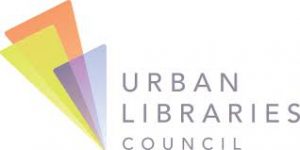The King County Library System stands with The Urban Libraries Council (ULC) statement on the role of libraries in dismantling systemic racism. Read the ULC statement below.
 June 1, 2020
June 1, 2020
Statement on the Role of Libraries in Dismantling Systemic Racism
The Urban Libraries Council stands with the #BlackLivesMatter movement and all who are calling for immediate, collective action to end the systemic racism and inequity entrenched in our communities.
While the unprecedented impact of COVID-19 has set the stage for a “new normal,” the past months have been filled with all-too-familiar demonstrations of racism’s enduring harm and deep roots. Facing increased barriers to resources and health services, African Americans and other marginalized communities are losing their lives to COVID-19 at a disproportionate rate. During this same period, the U.S. has witnessed the brutal, racist murders of George Floyd, Ahmaud Arbery and Breonna Taylor.
Systemic racism undermines our society and putting an end to it will require all citizens to work together — with the active support of dedicated community and government leaders. As highly trusted institutions and essential foundations of civic infrastructure, public libraries have a unique and vital role to play in advancing equity and addressing racial divides.
Twenty-first century libraries are pillars of safety, inclusion, diversity and democracy for the communities we serve. Libraries provide equitable access to information and digital resources for all people, regardless of race. They provide safe, respectful and welcoming spaces for civic discourse and the expression of diverse voices. Through carefully curated collections, community partnerships and targeted outreach, libraries intentionally engage and serve the needs of all populations. And, increasingly, libraries are taking bold stands and speaking up to call out and combat social injustice.
More than 160 North American public library systems have shown their strong commitment to ending structural racism by signing ULC’s Statement on Race and Social Equity, which asserts that “libraries can help achieve true and sustained equity through an intentional, systemic and transformative library-community partnership.” Libraries use this statement as a baseline for building progressive policies, activities and collaborative relationships to advance equity.
Beyond this statement, a commitment to creating a more just and inclusive world is foundational to all of ULC’s work. Following the outbreak of COVID-19, the ULC Executive Board announced a new initiative that is aligning North America’s libraries to identify the virus’ impact on race and social equity — and establish strategies for addressing that impact.
ULC is dedicated to continually breaking down systemic inequity. However, this task is too monumental for libraries to take on alone. We are all responsible. Every community. Every person. We must all step forward and actively foster new social structures built on inclusion, justice and mutual respect.
Susan Benton
President/CEO
Urban Libraries Council

